“Opera singer. Diva. Painter of sounds. Cold blonde from the far North. This is how I was described in the last couple of years, but I see myself in a completely different way. The Elīna Garanča of the stage has not so much in common with Elīna Garanča the private person. I do not feel like the divas of earlier times who lived the same role also outside of the stage. For me, the stage is special. In Latvia, nobody would step on it with street shoes – the dirt of the outside world and everyday life does not belong there. This is a different world of magic, fantasy, strong emotions. When I am there, I belong to the audience completely. But when the curtain rolls and the applause stops, (…) I return to my real life. I am a mother, a wife, a daughter and a woman.”
These are the first lines in opera singer Elīna Garanča’s autobiography, written in German. Why did she, still 45 years young, decide to write the story of her life already? Is this a mere gift to her fans? Or does she believe to be so misunderstood, so overshadowed by stereotypes, that she feels the need to show the “other” Elīna to the world? Surely, Garanča’s story is not usual. Born in the former Latvian Soviet Socialist Republic, she grew to be, according to reviewers, among the most authentic personifications of Carmen, an inevitable part of contemporary European opera life. There was a time though when she doubted whether she could have any future in this profession…
Cowshed, toilet paper, cigarettes
Even the title of the autobiography (Between Two Worlds) reveals how many dichotomies have been in Garanča’s life. There is the division of artistic and private life mentioned above, and there is the difference between small Latvia and huge Europe. Also, the way Garanča remembers her childhood implies that she had a dichotomic life as a little girl already. Her parents were intellectuals, her mother being a singer herself, but their own parents were peasants. Little Elīna spent a lot of time at the grandparents’ farm, which meant that she and her older brother also had to work in the fields. They got up at dawn, carried heavy stuff, fed the animals, just like the adults did. At school Garanča did not find her place, none of the other kids could understand her double background, and she was not like other girls. Which at least also meant, she remembers bitterly, that boys did not dare to bully her, being a musculous, heavy girl who was used to physical labour in the fields.

However, despite the tough village life, her grandparents were music enthusiasts. Garanča remembers that her granny always knew what was going on in the opera. Her grandpa and his three brothers were amateur musicians-singers, and there was no family feast without live music. Children were supposed to play the piano, but neither Garanča nor her brother liked it. The boy switched to clarinet soon, but their parents were more severe with the girl: the eventual opera singer spent twelve years in front of the piano. She was attracted to the stage already, but she was not sure about her way. Should she be an actress? A musician? If not a pianist, then what? Maybe an aerophonist…?
The death of her granny and the end of the Soviet Union brought huge changes into Garanča’s life. Regime change in Latvia meant a tough life and a deficit economy, however, the family could secure a bit of land from the inheritance close to the capital city, so they got closer to the cultural and musical life of Riga. That only made their life a bit easier; the singer remembers how her father queued with his two children for toilet paper, as families were entitled for a few more pieces, and how proudly they took it home…
In high school, Garanča finally found a friend, another girl from a musician family with whom she could spend time while their parents were practicing. Apart from sitting at home, they also went to discos and were party smokers. After finishing high school, Garanča tried to study acting but was not admitted. So she started her studies in cultural management, which she found boring and left soon. This was the time when she realised she actually wanted to sing. The first person to share this with was her mother, the mezzo soprano who, however reacted this way:
“You surely won’t be a soloist anymore, you ruined your voice with disco and cigarette!”
She was extremely hurt by these words, but now believes that her mother’s harshness was simply motivated by her worry over her daughter’s choice. Afterwards it was namely her who searched and found a music teacher for Garanča to help her prepare for the entrance exam. And she was admitted.
Cheque, love, little stars
The rest is history. Elīna Garanča became the star of the Riga music scene, but she did not stop there: she continued her studies in Vienna, then in the USA. After graduation she started her career in Meiningen, Germany, in the local theatre. The cheque she received there, as a symbol of decent work, was so important for her that she put it in a frame and hung it on her wall. Later her colleagues told her: OK, applause is great, reviews are great, but maybe she’d better collect the payment for her work…
The biggest breakthrough happened some years later at the Salzburger Festspiele where she sang in La clemenza di Tito by Mozart, and then she had some jobs in the Viennese State Opera, the Paris Opera and the Metropolitan in New York, too. Soon she was associated with her main role, Carmen, of which we can hear nine parts (arias and duets) on the stage of Müpa. The conductor will be Karel Mark Chichon whom Garanča met many years ago at another joint work. After a hard rehearsing process and a performance, they only started to talk at the banquet, but that succeeded well: they are married since and have two children.
Two famous artists in one family is not an easy ride. Garanča és Chichon need a lot of planning to coordinate their schedules, and once he was even accused of nepotism when he chose his wife for a role at a performance at the Canary Island. Latvia, on the other hand, awarded the British-born conductor with citizenship for doing a good service for the promotion of the country. Sure, the couple works hard, and they not only support each other but also young musicians: they started an initiative called FutureVoices (ZukunftsStimmen) in Austria. In mid-July, they will give a huge open air concert (so even the coronavirus cannot spoil it) with their mentees and musician friends in the garden of an Austrian abbey. They call it ‘Classics under the Stars’.
But even before that, the singer with the extraordinary life story will sing in Budapest. Do not forget – 30 June, Müpa: Elīna Garanča sings French, Italian and Spanish Romantic music and a Mediterranean mix, conducted by Karel Mark Chichon. Should not be missed!

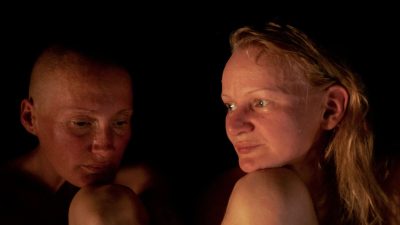
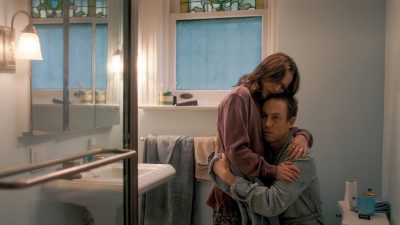

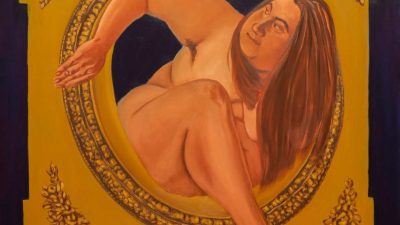
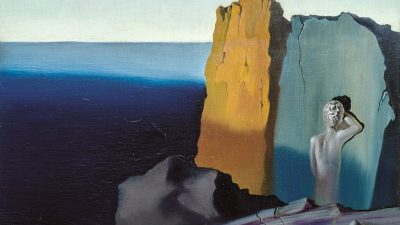



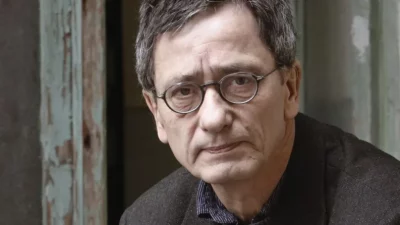




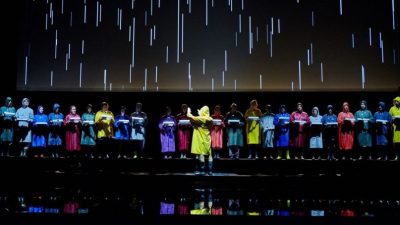





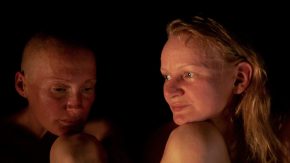





Comments